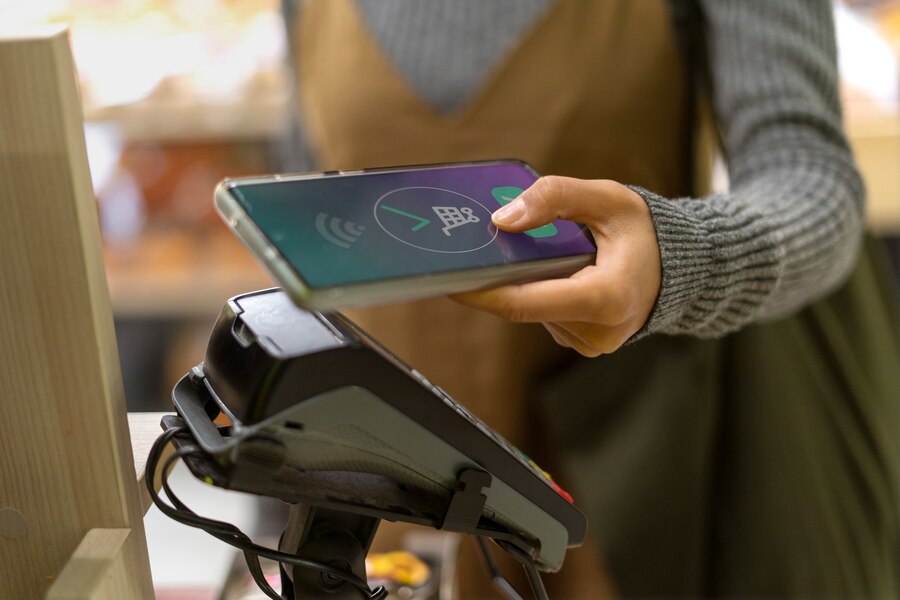
A reliable Point-of-Sale (POS) can upgrade how a business manages its inventory and handles transactions. It is also a fact that the business’s real potential stays untapped without a properly trained staff.
That’s why functional POS system training tips are vital to ensure that the workforce can leverage their system’s abilities to the maximum. This will lead to maximised return on investment (ROI), better customer satisfaction, and streamlined operations.
Looking Over the Importance of POS System Training
Let’s go through a breakdown of important benefits the successful POS system training tips can present by PWA development company in UAE:
|
Benefit |
Description |
|
Improved Accuracy |
Thorough training decreases errors in reporting, inventory management, and transactions. |
|
Faster Onboarding |
A properly structured training program assists new hires in getting up to speed quickly, bringing down disruptions to daily operations. |
|
Enhanced Customer Service |
Confident employees efficiently utilising the POS system can offer a smoother checkout experience for customers |
|
Reduced Costs |
Minimised errors and quicker onboarding can cause prominent cost savings |
|
Increased Efficiency |
Streamlined workflows and decreased training time let staff emphasise other crucial tasks |
|
Better Employee Morale |
Giving the workforce the skills and knowledge they need to improve job satisfaction and engagement |
It can be challenging to navigate POS system training tips. Different employees have different technology proficiency levels and learning styles. The key is in the making of an engaging and flexible program that serves diverse needs.
Creating a Robust Foundation for a Successful POS System Training
It is important to lay a robust foundation before implementing specific training methods. This is what needs to be done:
Pre-Training Groundwork
System Knowledge
Put in the time to deeply understand the POS system’s functionalities and features. Get to know its core functionalities, user interface, and advanced features associated with your business operations properly.
Noting Down Training Requirements
Examine various employee roles (senior executives, managers, staff, and so on.) and note the particular functionalities and tasks that each role should be proficient in. This will assist in the effective tailoring of the training program.
Gather Training Materials
Leverage resources presented by your POS vendor, which may include video tutorials, user guides, and also training modules that you can include in a given program.
Tailored Learning Approaches
Never rely on a one-size-fits-all approach when it comes to POS system training tips. Go with a host of methods to serve the various learning styles and maximise information retention:
Microlearning
Divide complex topics into smaller, easily understandable modules. This approach serves those with a shorter attention span and supports focused learning.
Blended Learning
This approach blends theoretical instruction (video tutorials, presentations) with practical exercises. Theoretical content offers a foundational understanding, whereas exercises offer trainees the ability to put their knowledge into effect in a simulated environment.
Learning Styles
Include visual aids such as screenshots and flowcharts for visual learners. Kinesthetic learners gain from role-playing scenarios and hands-on exercises. Offer audio recordings and written materials for auditory learners.
Training Techniques that Steer Knowledge Ownership
Some of the best POS system training tips are the ones that make learning interactive and which actively engage trainees. A very positive point to note here is that this is not as complicated as many think it to be. Just consider the following techniques:
Interactive Activities
Gamification
Add the fun and competition element by including game elements such as leaderboards, badges, and points. This will motivate those involved and promote active participation.
Role-Playing and Case Studies
Offer role-playing scenarios or real-life case studies to improve the understanding of best practices in tackling complicated customer interactions or resolving technical issues.
Q&A Sessions
Promote open discussions and questions via the training program. Resolve individual concerns and strengthen concepts that may demand added clarification.
Hands-on Learning
Peer-to-Peer Learning
Promote team exercises and collaboration. Employees with a good degree of experience can share practices and assist fresh hires through challenges.
Practice Stations
Put in place dedicated workstations that have mock data for trainees to independently explore the functionalities of the POS system.
Simulate Real-World Scenarios
Make training scenarios that are just like real-world situations that the workforce may have to face, such as handling discounts and returns, processing customer information, and managing loyalty programs.
For Long-Term Success, Go Beyond the Initial Training
POS system training tips should not be just about the initial sessions. For the sake of long-term proficiency and knowledge retention, try going with the following strategies:
Ongoing Support
Mentorship Programs
Apply a mentorship program in which experienced staff members offer ongoing guidance and support to fresh recruits.
Built-in Help Functions
Get your staff accustomed to built-in help features in the POS system itself.
Knowledge Base
Make an internal wiki or a readily accessible knowledge base that has FAQs, as well as other informational material.
Feedback and Performance Evaluation
Key Performance Indicators (KPIs) and Data Analysis
Perform data analysis and track KPIs associated with POS system utilisation. This will assist in identifying areas of improvement.
Feedback Mechanisms
Promote feedback from trainees across the training program. This will make way for continuous improvement of delivery methods and training content.
Post-Training Assessments
Perform post-training assessments like practical exercises or quizzes. This will help identify areas where the workforce may need further training.
Concluding Remarks
POS system training tips will allow you to maximise your POS system’s potential. No doubt, a properly trained workforce may unlock its true potential, leading to happier customers, streamlined operations, and a profit-making business.
Don’t forget – continuous improvement and ongoing support are the key. If you demand a future-proof and user-friendly POS system, think about partnering with a reputed PWA development company. The expertise of this company will ensure your POS system is not just a robust one; it minimises training requirements, maximises the effect of your POS system training tips, and is also intuitive.